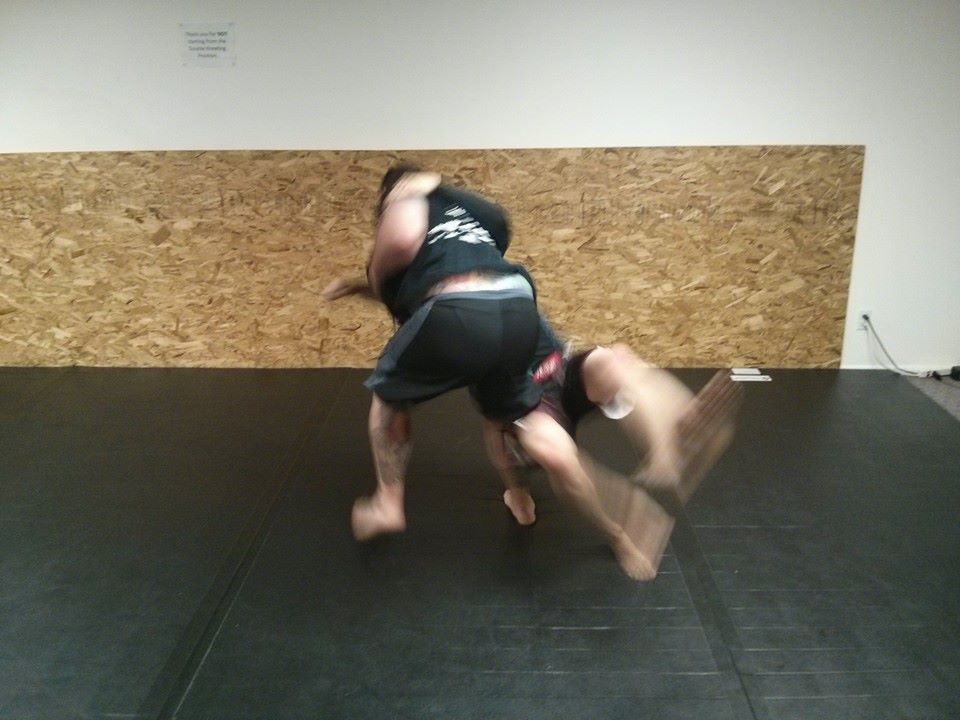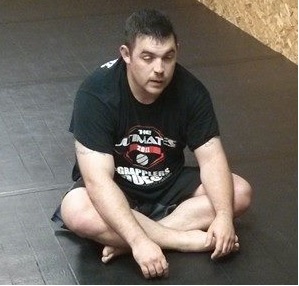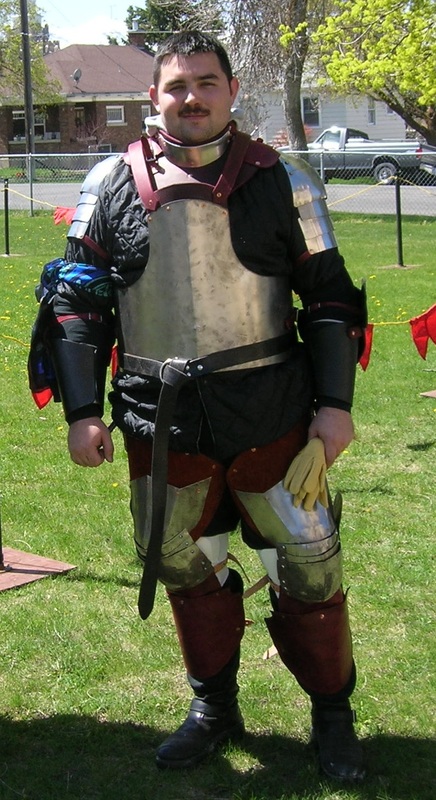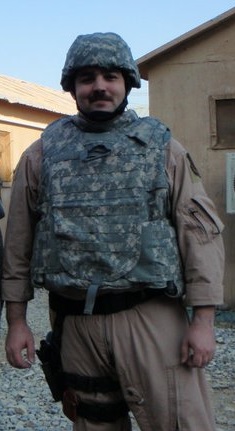You might be asking yourself, well, C.R. Langille, who are you and what makes you an expert? Great question. While I may not be an "expert" perse, I've practiced different fighting arts for over 17 years. I was a Wing Chun Kung Fu practitioner for over 9 years, I've been grappling for 2 1/2 years, I was a member of the Society for Creative Anachronism and fought in what they called heavy combat for a over 6 years. In other words, I'm familiar with what it feels like to don a full suit of armor and fight folks at combat speed and strength, both in single combat and in group settings. Does it make me an expert, no, but I know my way around a fight and I know what it takes to fight.
The first thing I want to touch on, is the gas tank. Not for your car, but for your body. It takes an incredible amount of energy to fight, both physically and mentally. There are factors to consider that you can control, and others that you can't. For example, breathing is probably one of the most important factors of a fight. If you don't continue to breathe, you run out of energy quicker. Sounds easy, right? Wrong. I have seen amazing athletes gas out because of breathing when they fight, where as I've seen somewhat out of shape folks continue forward. Why is this? It's because the art of breathing while fighting takes practice. It's something that early on you have to make a conscious effort to do until it is just second nature. The key, is relaxation. Sounds counter-intuitive, but the more relaxed your fighter is, the longer they will maintain gas in the tank. Don't believe me? Shadow box for one minute straight. Really focus on breathing, staying loose. You know you're there if you can keep up a conversation. Then, give yourself a bit to cool down and try it again, but go ahead and tense up when you throw your strikes. If you did it right, then you'll see the difference. You might ask, but if I'm relaxed, my strikes won't hit with power. Wrong again. It's hard to explain how or why this works, but if you watch highly skilled fighters compete, it almost looks effortless. You can hit faster, harder, and save more energy when you relax. This doesn't mean that you can go on forever, but you will be able to fight on longer.
Breathing and relaxation are all things that you can control, albeit with practice. There are factors that are going to be out of your control during a fight, things like adrenaline dump. Have you ever watched a professional fight, and near the end of the first round, or in the second round one of the fighters just seems to lose the energy to do anything? More than likely this is adrenaline dump. When the body knows something crazy is about to happen, it dumps a bunch of adrenaline through your system, basically your body dumps a ton of adrenaline into your system in a response to the upcoming battle. However, if the battle lasts more than a minute or so, then that adrenaline can sometimes lose its desired effect and leave you exhausted. I’m sure there is a better, medical explanation for this, but that’s the C.R. Langille diagnosis in a nutshell.
So what does this mean for your writing? This factors into larger battles more than anything. Your protagonist might be ramping up mentally before the battle, so much so that the body will dump adrenaline too soon. This means that soon after the battle begins, your main character will have an adrenaline dump and lose energy.
Another point, is fighting in armor. Armor restricts your mobility while offering protection. Armor is heavy. Even lighter armor is going to wear on the body after awhile, especially if your character is wearing it all day long. It takes an amount of physical conditioning to wear that throughout the day and not have negative side effects later on. If your character is wearing a helmet, it might restrict visibility or dampen hearing ability. Finally, it's hot. So there is a hydration issue, as well as the threat of heat stroke depending on the locale. Hell, depending on the locale there is the issue of freezing to death. Think about it, you get into a heated battle in the snowy wastes and win the day; however, you worked up a big sweat. Next thing you know, your cold and shivering, and then you're sleeping the long sleep.
Bottom line, if your characters end up fighting, just take a moment later to talk about how their body held up. Did they get injured? Well then don't forget about that later on when you have them trying to spring up a mountainside. Keep it fun, keep the action going and don't bog the narrative down with details, but keep it real as well. Your readers will appreciate it. Now go write.




 RSS Feed
RSS Feed